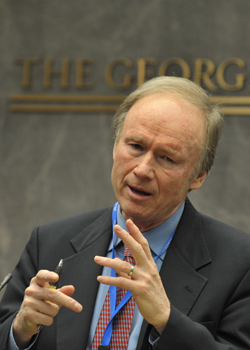Professor Edward Lee has uploaded a new working paper to SSRN titled Copyright-Exempt Nonprofits: A Simple Proposal to Spur Innovation. In the article, Professor Lee proposes a new way to deal with “the recurring problem created by new speech technologies that disrupt copyright law.” Read the abstract below:
New types of social networks have recently emerged that have facilitated the growth of a different kind of user-generated content: curation. The user finds various content from the Internet and then organizes or “curates” the content in a social network platform in a way that better serves the user’s purpose. For example, on Pinterest, users can “pin” content from the web onto their virtual “pinboards” that have topical categories of the users’ choice. The content typically involves a photograph (in reduced size) from the original web page that is then displayed on the user’s pinboard. Clicking on the photograph displays the actual photograph (or a copy of it), but displayed on the Pinterest website, with attribution and a link to the original website. In this way, the user is able to organize content from the web visually by the user’s own categories, such as favorite recipes, yoga instruction, furniture to buy, or places to travel.
In the background of Internet curation lurks copyright law, waiting to rear its proverbial head. The kind of activity Pinterest facilitates may constitute copyright infringement, although at least an arguable defense based on fair use or the DMCA safe harbors exists. If a lawsuit is filed, an adverse decision against the site could put in jeopardy this emerging practice of content curation — quashing it generally.
This Article offers a way for Congress to address, more generally, the recurring problem created by new speech technologies that disrupt copyright law. The proposal is for Congress to enact a copyright exemption for qualifying 501(c)(3) “charitable” non-profit entities. These entities will be “copyright exempt” for a limited purpose to develop and deploy new kinds of Internet speech technologies free for the public’s use. Under the proposed Nonprofit Internet Copyright Exemption (NICE) Act, such nonprofits and their users will enjoy a copyright exemption for noncommercial activity involving user-generated content, including Internet curation.
Download the article from SSRN here.



Leave a Reply